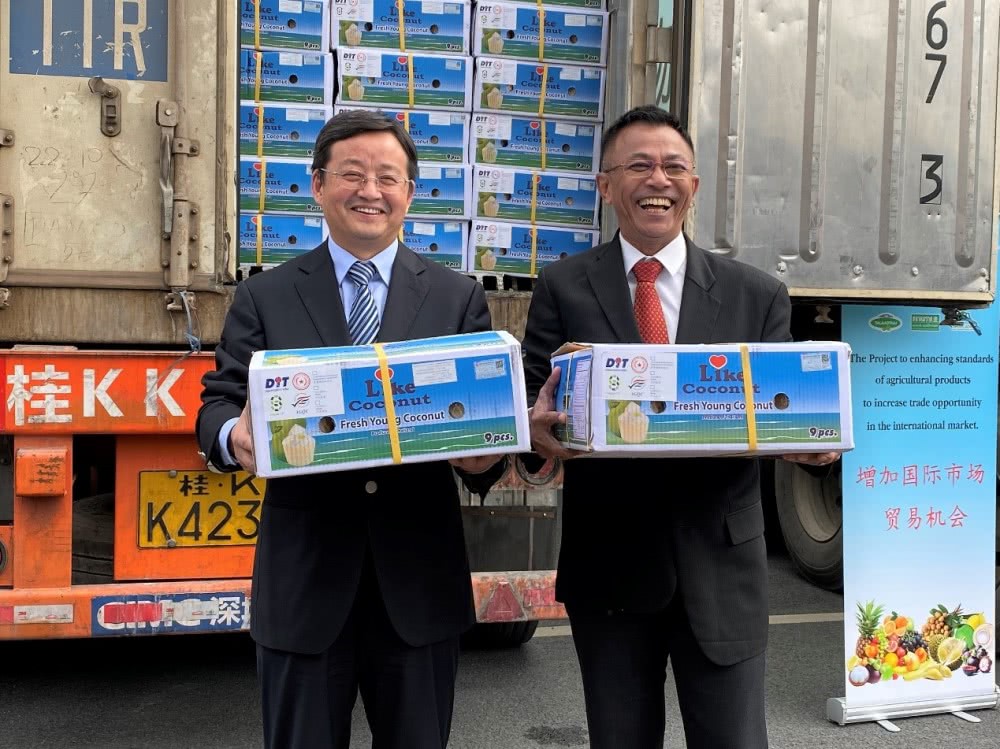中泰水果贸易持续扩大

眼下正是中国进口东南亚水果旺季,在中国最大陆路水果进出口口岸广西凭祥友谊关,大量来自泰国的榴莲、山竹等经过整车消杀、采样核酸检测、果箱喷淋消毒等一系列程序后放行,进入中国市场。
在口岸经营跨境物流的广西运多多供应链管理有限责任公司总经理王正波告诉记者,该企业已和泰国多家果园建立产地直采合作模式,构建起覆盖中国、越南、老挝、泰国等多个国家双向跨境物流网络,在帮助泰国水果种植者得到更稳定订单的同时,也让中国消费者享受到更实惠的水果价格。
泰国有22个水果品种可出口到中国。数据显示,2021年上半年泰国水果对中国出口24.2亿美元,同比增长71.11%。
泰国驻广州总领事馆农业处领事周伟弘在一个中泰水果洽谈会上介绍,目前还有好几个泰国水果品种正在申请准入中国市场,中国市场对泰国水果的消费量仍有巨大增长空间。
周伟弘称,中国西部12个省(区、市)市场广阔。除陆路口岸外,泰国企业正努力探索将水果通过广西北部湾港以海运方式出口中国,尤其是通过西部陆海新通道海铁联运无缝连接,销往中国西部地区的新路径。
中国(广西)自由贸易试验区钦州港片区管委会贸易与物流发展局协理局长陈保国介绍,作为北部湾港主要港口之一,钦州港已开通6条至泰国的集装箱直航航线,其中水果快线每周5班,从泰国林查班到钦州的快线运输仅需3天。
广西凭祥铁路口岸此前获批进境水果指定监管场地后,也已实现国际冷链集装箱班列常态化开行,使泰国水果更加便捷地进入中国市场,有效分流友谊关等公路口岸的通关压力。
广西贸促会会长魏然表示,广西是东南亚水果输华的重要门户,以广西贸促会、中国物流与采购联合会、东盟国家物流协会共同发起成立的中国—东盟多式联运联盟为载体,中泰将促进物流合作,并举办多种水果贸易投资促进活动,推动完善产供销一体化的专业跨境水果供应链、产业链。
